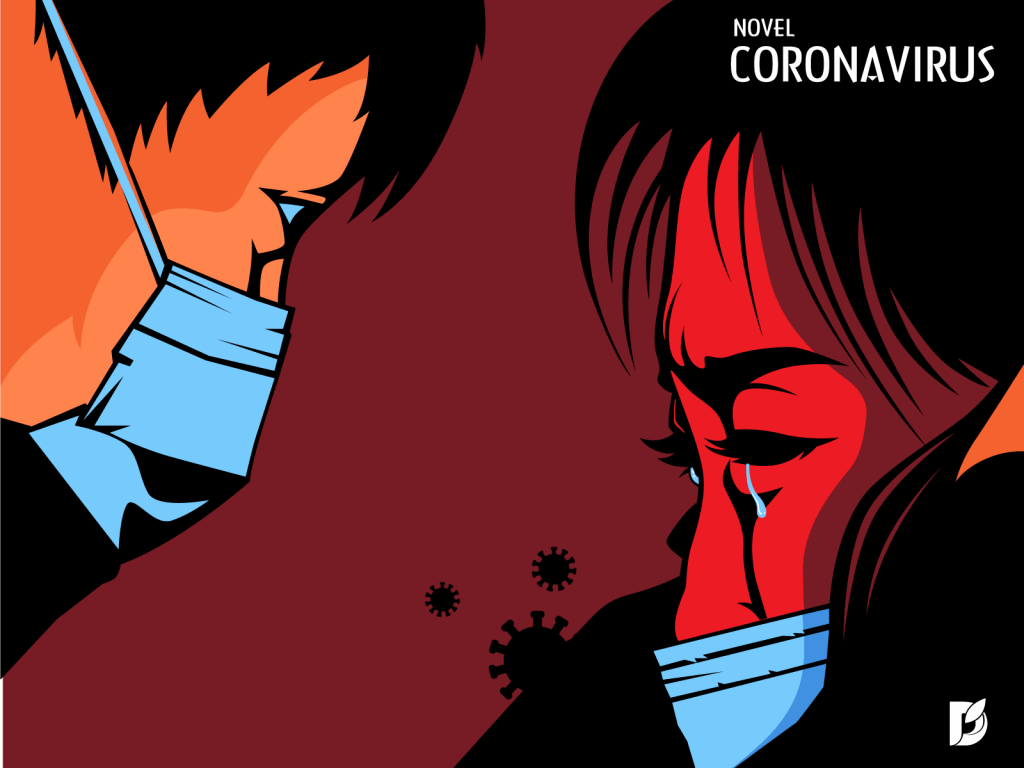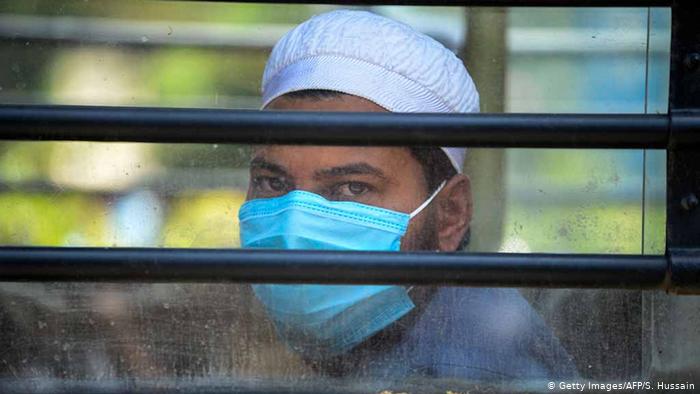RIO DE JANEIRO, BRAZIL – “If I end up getting used to it, they’ll never see me on the street again.” This sentence was published by a Spanish writer a few days ago on social media. And he is not the only one to declare, during this crisis, that remaining permanently at home is a kind of blessing (except that the Apocalypse keeps shouting outside).
On the other hand, there are also memes piling up and flooding the screens asking the bars to stock up on beer because the attack that some are pledging to inflict on them makes the shortage of toilet paper seem anecdotal. What will happen to our sociable nature when the lockdown is over or gradually suspended? Obviously, we will not crowd the bars (among other reasons, because it will not be allowed). But will our way of being and relating change that much?
From the point of view of psychology, the style of attachment of each one determines the mechanisms of facing reality. There are people who are more introverted, more anxious, more balanced, or more chaotic and impulsive.

“This is the factor that leads everyone to have a different response to the pandemic and, particularly, to its restrictive consequences,” says Carmen Soria, a health psychologist and director of the Integra Therapia clinic in Madrid. Our response after the confinement and our coping mechanisms for each stage will also rely on these ways of being. “We will face the situation, we will understand it and finally there will be acceptance”.
“We will understand that we are vulnerable, but not powerless. No doubt there will be changes, but these don’t have to be all negative,” says Soria. The psychologist offers some examples: we will have learned that we can keep our relationships even at a distance, we will have known how to discard those who do not have to be in our lives, we will have accepted how vulnerable we can be to changing habits and we will have expanded our domestic leisure.
New art forms will be born
“We are social, gregarious and creative animals. And we will adapt the ways we communicate to the means we have,” Soria says. In addition, history provides clues as to how emotions will boil after the confinement. And what is more art-related than feelings themselves?
Faced with the medieval black plague and its subsequent epidemic cycles, which reached the modern age, the collective anguish and anxiety of the population served to enlighten new rites, such as processions of flagellants, vows and penances. They also became more aware of the frailty of human life and the condition of death as an equalizer of social classes, from the Pope to the peasant. Proof of this is the emergence of the dances of death, a new artistic genre that, through the combination of literary text and graphic representation, portrayed death as a skeleton dragging people from all social strata with its danse macabre.
Today, the fruit of creation should not be so bleak, but everything suggests that it will be related to digital transformation, a territory still to be explored by many artists in this country. In fact, the first museum of visual artists inspired by the pandemic has been born. It’s on Instagram, of course.
Meanwhile, on the street, there will be a coy apprehension of touching each other.
Who among us was not surprised to watch in a movie these days the scene of a crowded subway car, with its short close-ups of hands holding the railings and no safe distance between the crowded passengers? It’s disconcerting to observe this perfect peace of mind, a heritage prior to Covid-19.
And the feeling of strangeness is magnified for those who live alone and are now experiencing their fifth week without even an accidental physical contact with another suffering being. The scene when we go down to do the shopping is real and consistent everywhere in the country: fearful long-distance glances at those sharing physical space with us at the supermarket ensue. We address them with the scruple of survival, now that each one of us is a potential involuntary vector of the virus. And the fact is, there is nothing new in this attitude under the sun.
Our ancestors also suffered from flight and fear of contagion associated with the epidemic, as Andrés Bernáldez (1450-1513), the chronicler, recounts when he points out: “The living fled from each other, from those who were in the countryside, from the village, so that they would not be caught”.
The same is recounted by an author of the time, Giovanni Boccaccio, in his storybook The Decameron. In it, he narrates the departure of a group of young people from the city of Florence to a country house before the outbreak of the plague in 1348. This kind of voluntary isolation measures were fundamentally enforced by the aristocracy , as was also observed in Cordoba in response to the plague epidemic declared in the city in 1488.
On the other hand, and as a hopeful comment, the professor of Medieval History Margarita Cabrera recalls, in a study on that pandemic, that the social concerns generated by the fear of contagion also coexisted with social solidarity phenomena; particularly that of the family, where medical care for the infected and their follow-up reigned.

The fear will pass…and we will want to embrace
On the question of whether this fear of touching each other will fade over time, the psychologist answers: “Are we still going on vacation to places where natural disasters have happened? I would say yes, without having statistical data on hand. The core of the problem is how long it has been since the disaster occurred before the site was recovered as a tourist area. The question is not whether we’re going to be suspicious, but rather how long we’re going to be so. This ‘how long’ will be very much conditioned by the development of the pandemic and medical advice”.
And she adds: “People who enforce their distancing out of sheer fear of relating will probably do so because they respond to prior pathologies, psychological or psychiatric, and not so much because of the pandemic itself”. Test your family and friends. Adela Iglesias, a 57-year-old teacher, says: “I am dying to hug my friends, my acquaintances and the strangers that will let me. I long for physical contact and I am not afraid (unless someone is sneezing or coughing, but I have experienced this in the subway and buses before the confinement and survived)”.
José Luis matches her wishes, a 74-year-old retired bank clerk who had not set foot outside since the announcement of the state of emergency in Spain, adds: “I would like to continue with the same habits I had before quarantining and do something exceptional to celebrate the end of this nightmare with my family”.
Teenagers will have the advantage
We can also perceive major changes in our economy since the start of the pandemic, which is now suffering a marked polarization: some sectors are suffering terrible consequences, but others are being invigorated, as in the case of a number of platforms such as Netflix, which have been valued on the Stock Market.
Many are seizing the opportunity to “catch up” and watch a large variety of series that they said they should have watched by now.
Here too we find remarkable differences when it comes to better or worse endurance to confinement (and therefore to those that may be forthcoming). In the psychologist’s words, “teenagers are very used to this kind of leisure of spending hours at home. I believe that this pattern possibly made their first weeks at home easier: it’s not so different from their known habits”.
Thus, they will be less affected. Although she says, “We’ll have to see if they’ll stick to it, because a PlayStation or Netflix marathon isn’t the same when you’re free to do it and when you’re not. Saturation can reduce its positive effect by the force of habit”.
As for young people, Fernando Bayón, a philosopher and director of the Deusto University Leisure Institute, notes: “We’re going to need the teenagers. A very interesting leisure training will be created within families, which will force us to reflect. It is false that the digital natives are less social. There is plenty of solitude in the bar. And a lot of people alone at home playing video games together.”
And we can’t let our guard down
We’ll use the critical spirit a great deal. There will be no alternative. This will happen in view of the many paranoid conspiracy theories that associate the onset of contagion with a potential bacteriological war, the wick of which has been lit, depending on who opines and always devoid of evidence, in one place or another on the planet, at the mercy of purported economic and strategic interests. Or to avoid spreading rumors and fake news.
The anguish associated with a devastating situation has already damaged our past societies, which have also sought their own scapegoats. It was the case of the Jews who, as a text by Pope Guy de Chauliac reminds us, were accused of poisoning the water in the wells during the black plague epidemic.
Many of the sad events of their persecution that took place in the second half of the 14th century are explained as a result of this fear. Which brings us to the significance of empathy: it is a great time to start cultivating it.
Source: El Pais

